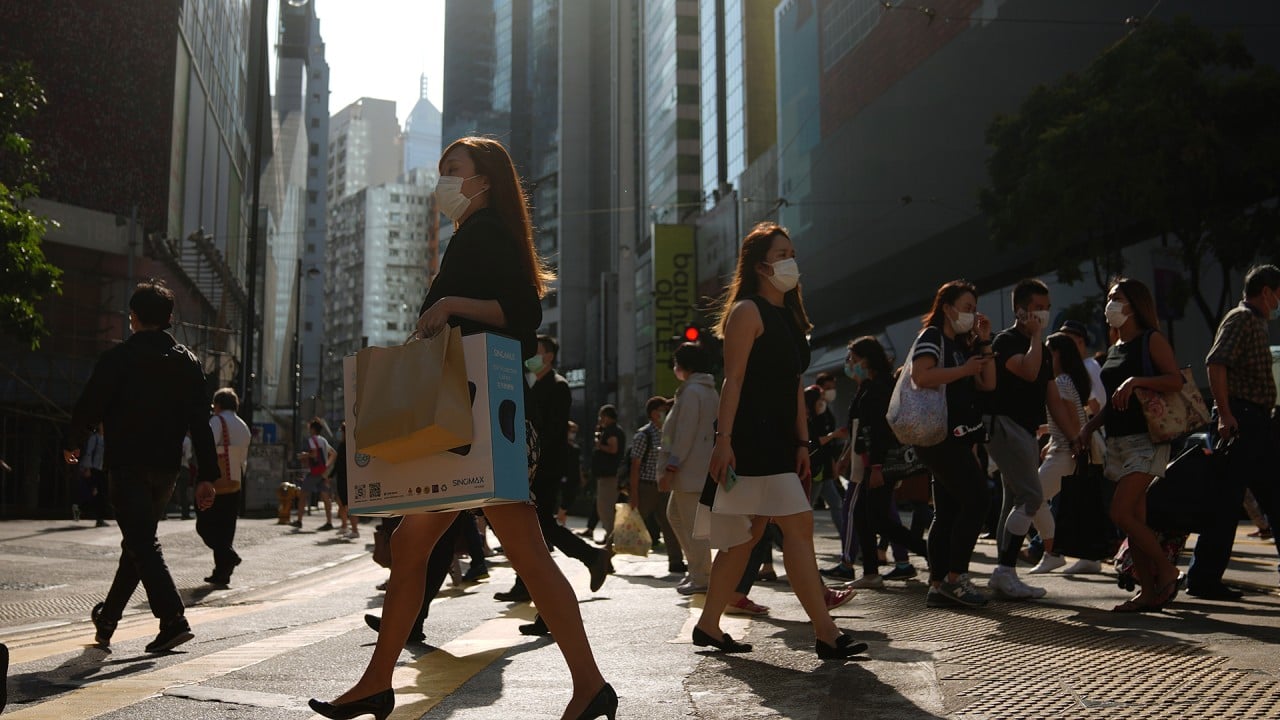
Banks, restaurants and cafes swoop in as Hong Kong’s retail rental index sinks to a 34-year low
- High street rental index in the second quarter fell to the lowest level since the second quarter of 1988, according to JLL
- Current rent levels are down 75.3 per cent from the peak reached in the third quarter of 2014
With Hong Kong’s high street shop rental index at its lowest level in over three decades in the second quarter, banks and retailers are cashing in on the opportunity to set up in prime locations, according to market observers.
The retail rental index is currently 75.3 per cent lower than the all-time high reached in the third quarter of 2014, according to JLL. That puts rents at a level last seen in the second quarter of 1988, the consultancy said.
The market is currently experiencing its worst moment since the initial outbreak of Covid-19 in 2020, said Jeannette Chan, senior director of retail at JLL.
“The market is and will be very policy-driven, and the current sentiment is not strong enough to translate into more concrete market activities,” Chan said.

Market observers said many top banks were locking in lower rents as their leases come up for renewal, which were previously in excess of HK$1 million (US$127,390) per month.
Citibank recently renewed the lease of its 7,500 square foot branch in Causeway Bay for HK$940,000 per month till September 2025, 35 per cent lower than the previous contract that ended in May 2022, according to agents.
“In the current landscape, a lot of banks have renewed leases successfully in core retail districts,” said Cynthia Ng, head of retail services at Colliers. Some other banks are also looking to relocate to first-tier high streets, she added.
Hong Kong restaurant operators downsize operations to beat Covid-19 slump
Newcomers from overseas have leased 47 per cent more retail space in the first half compared with a year earlier, with 60 per cent of the space taken up by food and beverage operators, according to JLL.
Singapore-based Flash Coffee, which entered Hong Kong last September, had opened nine stores up to March. Backed by Rocket Internet and technology investment platform White Star Capital, Flash Coffee is keen to open 50 stores in the city by the end of this year, Jonathan Tsao, managing director for Hong Kong, told the Post in March.
What you need to know about second batch of Hong Kong consumption vouchers
The second batch of consumption voucher distribution starting on August 7 will help to drive retail sentiment, which could help lift shop leasing activity, said Colliers’ Ng. She added that domestic consumption holds the key as the outlook for tourism remains uncertain amid travel restrictions and curbs on cross-border movement.
Luxury retailers continue to reel from the slowdown in economic activity and lack of tourists in Hong Kong. Last week, British fashion house Burberry shut down a three-storey store on Canton Road, Tsim Sha Tsui, due to a challenging market environment amid Covid-19, according to Inside Retail Asia.
“The second half of the year won’t be easy, especially for the luxury retail business,” said Simon Smith, regional head of research and consultancy for Asia-Pacific at Savills. Retail businesses might be affected by rising interest rates, inflation and stock market fluctuation, which could affect discretionary consumer spending, he added.
Still, market observers expect retail rents to rise in the second half.
As local consumption holds the key, more F&B brands are expected to enter the market along with supermarkets, home living and leisure, all of which will drive leasing demand, said Ng at Colliers.
“If there are no further serious pandemic outbreaks in the remainder of 2022, we expect a full-year retail rental recovery of 5 per cent.”


